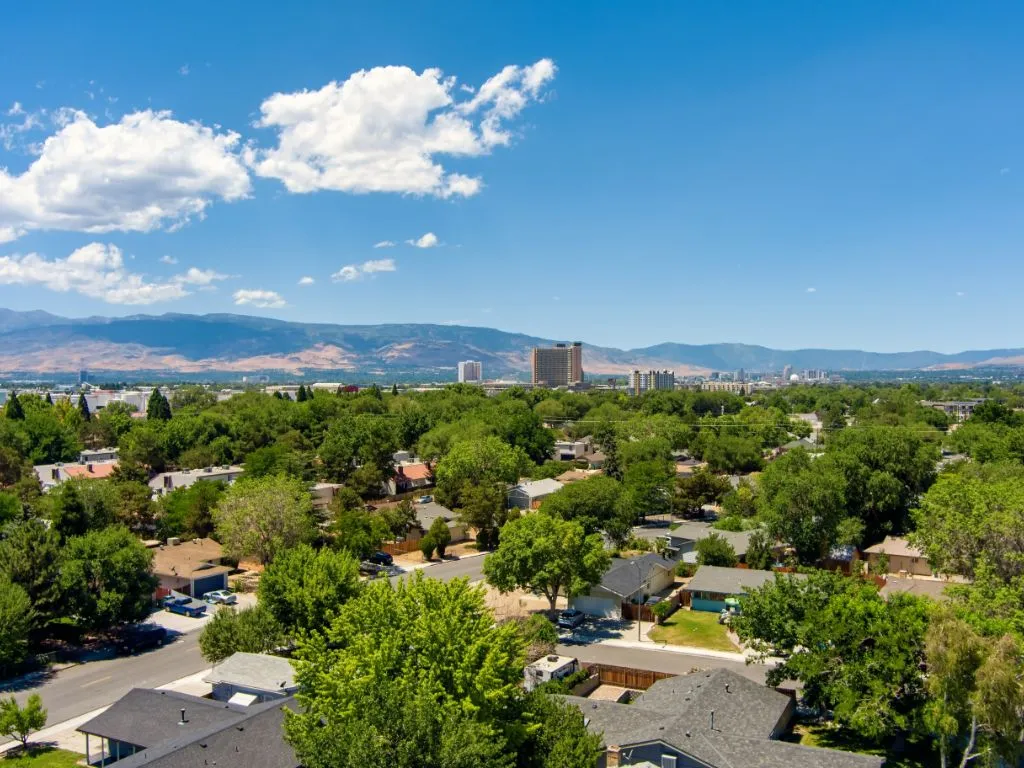Top 10 Pros and Cons of Living in Beaufort, SC

Beaufort’s close-knit community, small-town charm, and deep-rooted history have earned it the nickname “Queen of the Sea Islands.” Beaufort is the setting for a number of famous movies, including Forrest Gump, The Great Santini, and the breakout success on Netflix, Outer Banks.
The Parris Island Marine Corps Recruit Depot and U.S. Marine Corps Air Station, two major U.S. military bases, are located in the Beaufort area.
The city has a plethora of interesting facts to share about its history and culture. Beaufort’s amazing history of Gullah culture, which is exclusive to the lowcountry, is, perhaps, the city’s most fascinating asset. Let’s discuss 10 pros and cons of living in Beaufort, SC!
Pros of Living in Beaufort
1. The city is extremely beautiful
The natural beauty of Beaufort is breathtaking. The beaches in the area are some of the best you’ll ever see. Most of the South Carolina coast is characterized by moss-covered oak trees that are centuries old and have grown moss on their branches for decades.
Downtown has a similar air to Charleston because of the stately historic residences and historical buildings. Attractive as spring already is, the season is enhanced by the blooming of colorful flowers.
In terms of beauty, the city of Beaufort is unparalleled.
2. The city has low tax rates
South Carolina has one of the lowest gas prices in the US due to its relatively low gasoline tax.
Statewide and locally, property taxes in Beaufort are among the lowest in the country. You might not even have to pay much in state income tax if you qualify for all the deductions.
WalletHub ranks South Carolina as having the eleventh-lowest tax burden in the US, and of course, Beaufort enjoys this too.
3. The people are friendly and hospitable
The people of South Carolina are known for their genuine southern hospitality, and Beaufort has managed to preserve this charming aspect of its culture.
Beaufort is one of the few coastal towns that hasn’t lost its rustic appeal as it has gotten increasingly affluent. People will greet each other and linger in the company of strangers on the street.
The locals here are warm and friendly, both to newcomers and long-time residents. If you relocate to Beaufort, you will feel at home very quickly.
4. Beaufort has a rich history
Beaufort is the state’s second-oldest city, having been established in 1711.
It’s not uncommon to find structures downtown that predate the United States. It has a long and interesting history that includes the American Revolution and the Civil War. Besides its excellent museums, the city could be considered a historical time capsule of the United States.
The Gullah people, who had been emancipated from slavery after the Civil War, settled on the barrier islands off the coast and gave rise to the city’s unique culture.
5. Lots of outdoor activities
There are a lot of outdoor recreational opportunities in Beaufort, and you’re sure to find one you like. There are numerous opportunities for outdoor recreation, including golf and tennis.
The beaches in the Beaufort area are not as congested as those in other popular vacation spots. One can participate in water activities all through the year, and one can go hunting, fishing, or even learn how to capture shrimp in the marshes.
Henry C. Chambers Waterfront Park, Spanish Moss Trail, Beaufort Lands End Paddling, Hunting Island Beach, Sands Beach, and Cypress Wetlands are just a few outdoor spots in and around Beaufort.
6. A mild climate
Beaufort has a better average annual temperature than the vast majority of the United States. In the southeast and along the shore, temperatures are higher, but sea breezes keep things comfortable. The city has an average of 216 sunny days per year.
The pleasant year-round temperature is a big draw for retirees to Beaufort. Temperatures rarely fall below 40 degrees in the winter, and many days even reach the 50s. It could rain a lot in the fall, but even then, the weather is usually pleasant.
Cons of Living in Beaufort
1. There are too many insects
The most annoying part of summer is dealing with mosquitoes, and that problem lasts for months. It can dampen the excitement of going outside. There’s also the problem of roaches and palmetto bugs, so you’ll have to get used to fighting them off.
In most cases, an exterminator service is available to help homeowners maintain control. You just have to get used to the fact that insects are always around, whether you’re inside or out.
2. You could feel isolated in this city
There is so much to see and do in Beaufort that you might never get bored. Yet, the city is rather isolated from major urban centers, and no more than 14,000 people are living in the city.
Charleston is the closest major city, and while it’s 80 miles away by car, it’s much closer by boat. As Beaufort is located on a barrier island, there is only one route to the Interstate that passes by the city. It takes time to get there, so you might find yourself missing the comfort and excitement of a major city.
3. Not many educational opportunities
The Beaufort area’s schools are poorly ranked statewide and nationally.
Some private institutions charge exorbitant tuition rates. The city is home to the Technical College of the Lowcountry and a satellite campus of the University of South Carolina. Still, these are the only two higher education options for city youth.
4. The crime rate is a problem
Beaufort has a crime rate of 41 per 1,000 residents, making it one of the highest in the country compared to other cities of a similar size.
Theft and other property crimes are the most common, but there are also some instances of violence. There are hardly any murders, but there are more robberies and rapes per capita than the national average. However, the Downtown area is relatively safe.
To Sum it All Up
Is Beaufort the city for you? This city has many advantages, including the mild weather, friendly people, and low tax rates. However, it is crucial to consider the cons before moving, such as the high crime rate, lack of educational opportunities, and the possible feeling of isolation.






